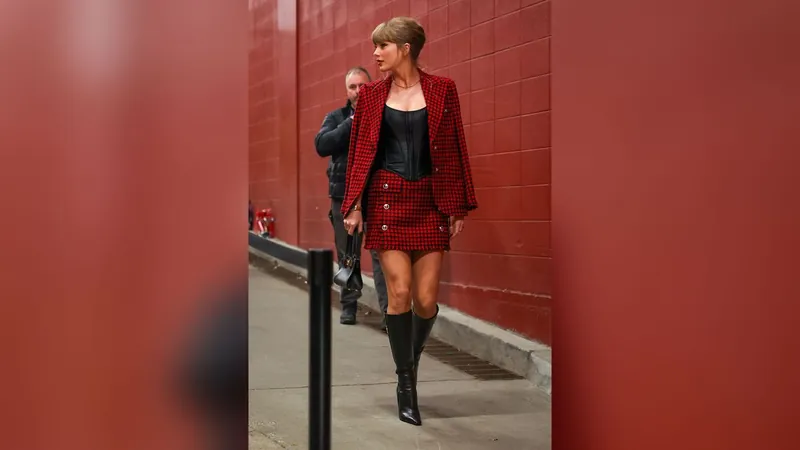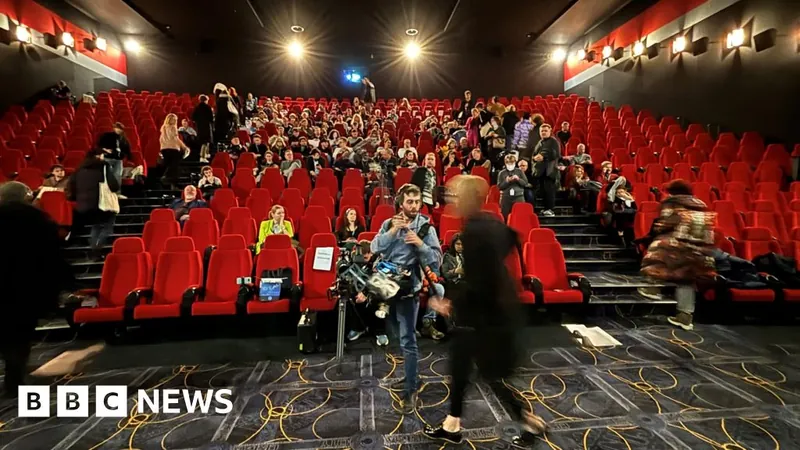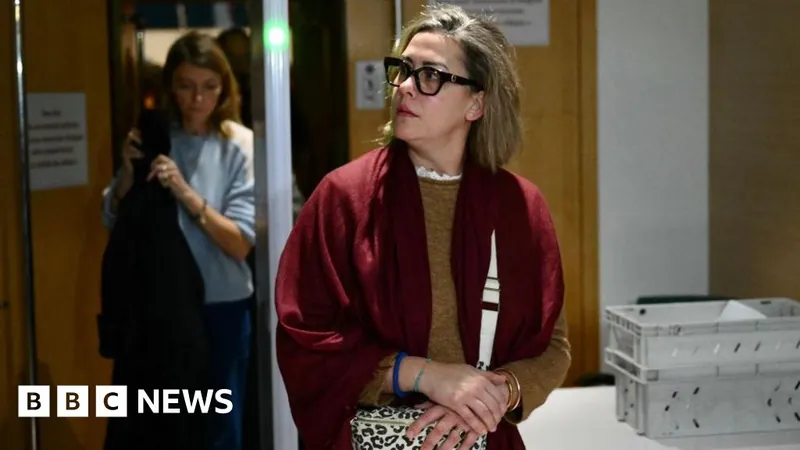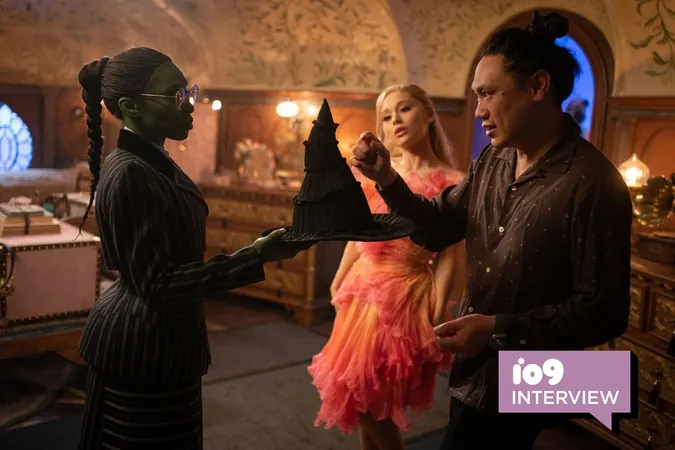
Taylor Swift's Bodyguards Spotlight Ongoing Dangers of Paparazzi for Women
2024-11-17
Author: William
Last Sunday, Taylor Swift graced Arrowhead Stadium in Kansas City to cheer on her boyfriend, Travis Kelce, during the highly anticipated NFL matchup between the Kansas City Chiefs and the Denver Broncos. While the couple typically draws media attention, this event saw Swift's security team take center stage as they confronted the paparazzi in attendance.
In a video that quickly went viral, Swift's security team can be observed vocally addressing the photographers, urging them to stand up and maintain a respectful distance. This awkward moment unfolded as Swift donned a chic tweed Versace skirt suit, prompting concerns among her fans—affectionately known as 'Swifties'—that photographers might exploit the situation to engage in 'upskirting' practices, where images or videos are taken from underneath someone's clothing without consent.
Comments on social media reflected outrage at the need for such precautions, with one user expressing horror at the scenario while another praised Swift's security for their vigilance amidst such disturbing behavior. The term 'upskirting' refers broadly to the act of taking sexually invasive images without permission, and despite societal advancements, this issue remains prevalent.
Illustrating the predatory nature of some paparazzi, kneeling to snap photos is a common tactic, but it can create opportunities for unethical practices, especially when female celebrities are involved. Historically, moments immediately before and after exiting vehicles have proven to be prime targets for photographers, even leading to the publication of 'how-to' guides for women aiming to avoid unwanted exposure.
Legislation surrounding upskirting varies significantly across the United States, and the UK only outlawed it in 2019 following substantial activism led by Gina Martin after her own experience at a music festival in 2017. Moreover, while upskirting has been illegal in India since 2000, a recent court ruling in Kerala shockingly determined that non-consensual photography of women in public does not fall under voyeurism, highlighting ongoing gaps in legal protections.
In a further illustration of societal sensitivities surrounding media portrayal, earlier this year at the Paris Olympics, Yiannis Exarchos, CEO of Olympic Broadcasting Services, emphasized the necessity for camera operators to treat male and female athletes equally—underscoring the persistent issue of sexism in sports coverage and media representation.
Swift's encounter at the NFL game serves as a stark reminder of the vulnerabilities women face in the public eye, particularly from an industry that often prioritizes sensationalism over respect. As the conversation around consent and the objectification of women continues to evolve, incidents like this compel a reevaluation of ethics in celebrity photography and media practices.









 Brasil (PT)
Brasil (PT)
 Canada (EN)
Canada (EN)
 Chile (ES)
Chile (ES)
 España (ES)
España (ES)
 France (FR)
France (FR)
 Hong Kong (EN)
Hong Kong (EN)
 Italia (IT)
Italia (IT)
 日本 (JA)
日本 (JA)
 Magyarország (HU)
Magyarország (HU)
 Norge (NO)
Norge (NO)
 Polska (PL)
Polska (PL)
 Schweiz (DE)
Schweiz (DE)
 Singapore (EN)
Singapore (EN)
 Sverige (SV)
Sverige (SV)
 Suomi (FI)
Suomi (FI)
 Türkiye (TR)
Türkiye (TR)